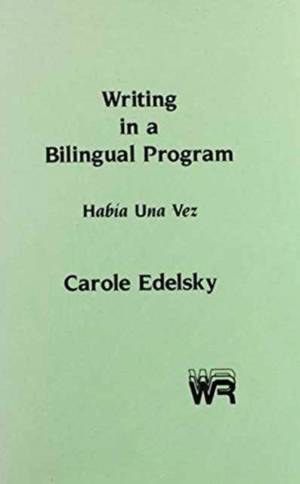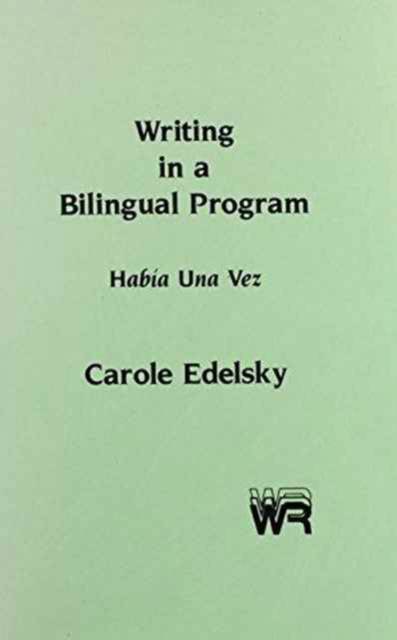
- Retrait gratuit dans votre magasin Club
- 7.000.000 titres dans notre catalogue
- Payer en toute sécurité
- Toujours un magasin près de chez vous
- Retrait gratuit dans votre magasin Club
- 7.000.0000 titres dans notre catalogue
- Payer en toute sécurité
- Toujours un magasin près de chez vous
Description
This volume examines the writing of children enrolled in an unusual bilingual program in the Southwest that emphasized writing in the first language until literacy was well established, and which attempted to offer an integrated curriculum. As a result, the volume presents research findings on children's spelling in both Spanish and English, their written code switches, segmentation, beginnings and endings of pieces, quality of the content, the relationship of first and second language writing, the role of the teacher in children's writing, and evidence that refutes common beliefs about writing, bilingualism, and other topics. From a broader perspective, the volume presents three different, yet interwoven stories: changes in children's writing over time; evolution of the theoretical stance used to analyze writing as well as changes in the theory that played an important role in shaping some of what occurred in the children's classrooms; and an unfolding of some of the events in this bilingual program and the relation of these events to children's writing and classroom practice.
Spécifications
Parties prenantes
- Auteur(s) :
- Editeur:
Contenu
- Nombre de pages :
- 256
- Langue:
- Anglais
Caractéristiques
- EAN:
- 9780893913816
- Date de parution :
- 01-01-86
- Format:
- Livre broché
- Format numérique:
- Trade paperback (VS)
- Poids :
- 367 g

Les avis
Nous publions uniquement les avis qui respectent les conditions requises. Consultez nos conditions pour les avis.






